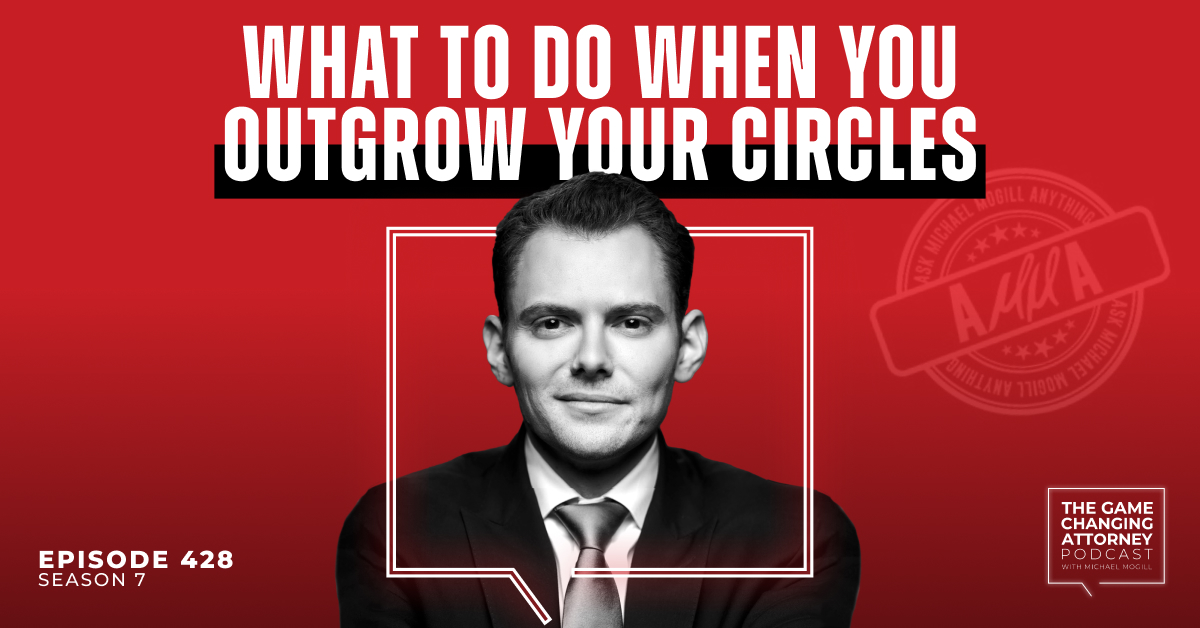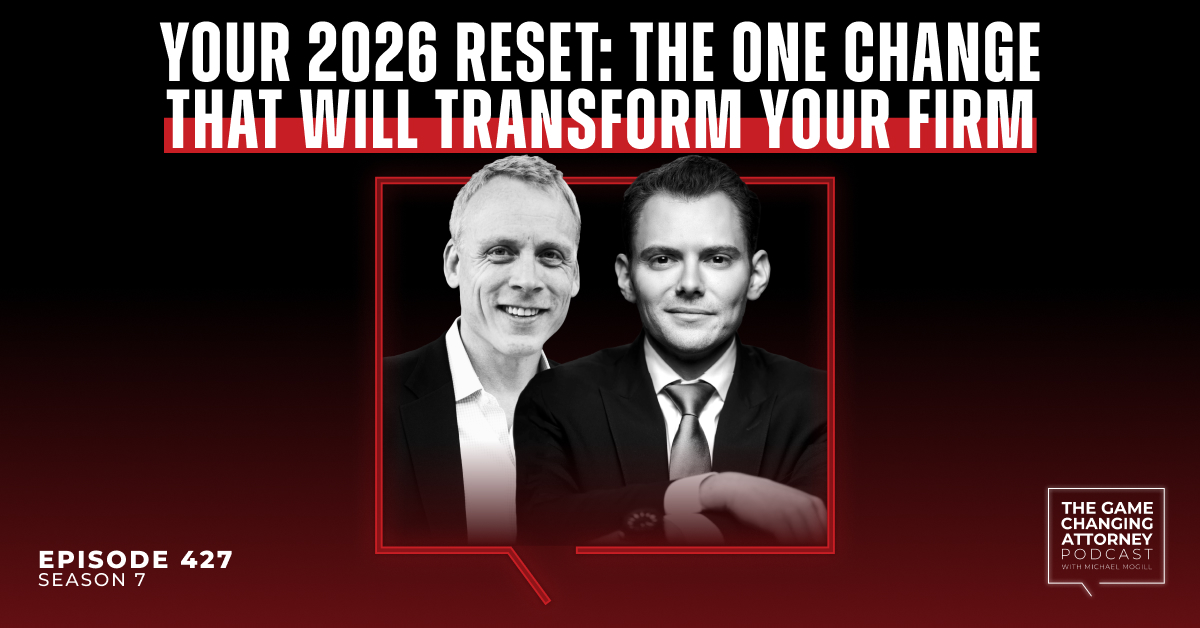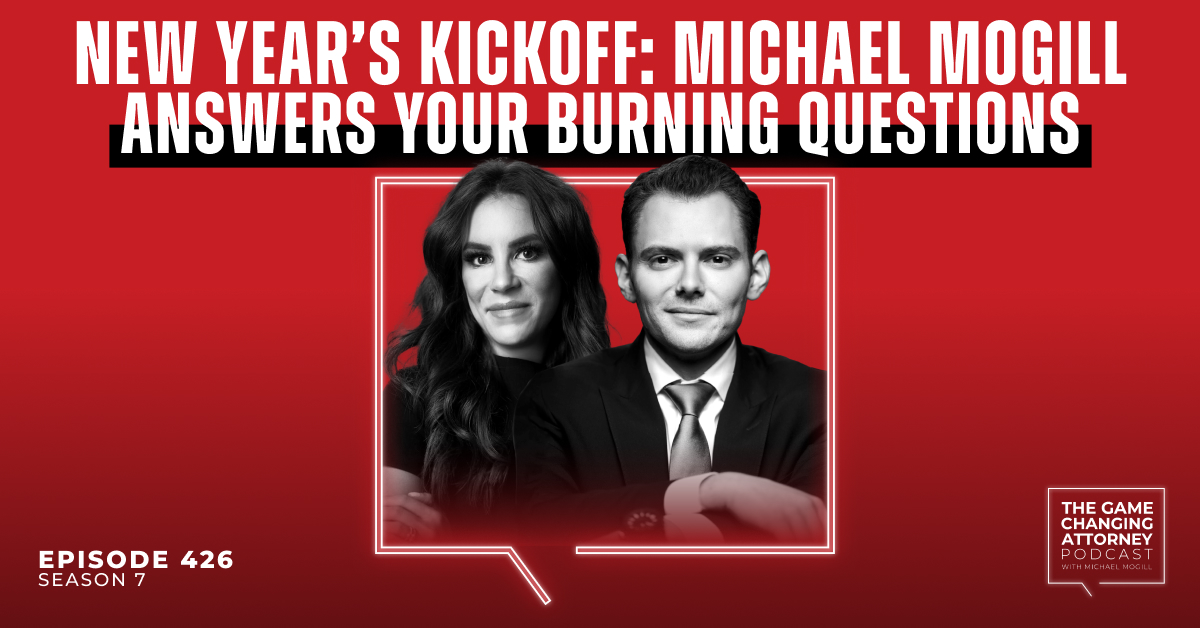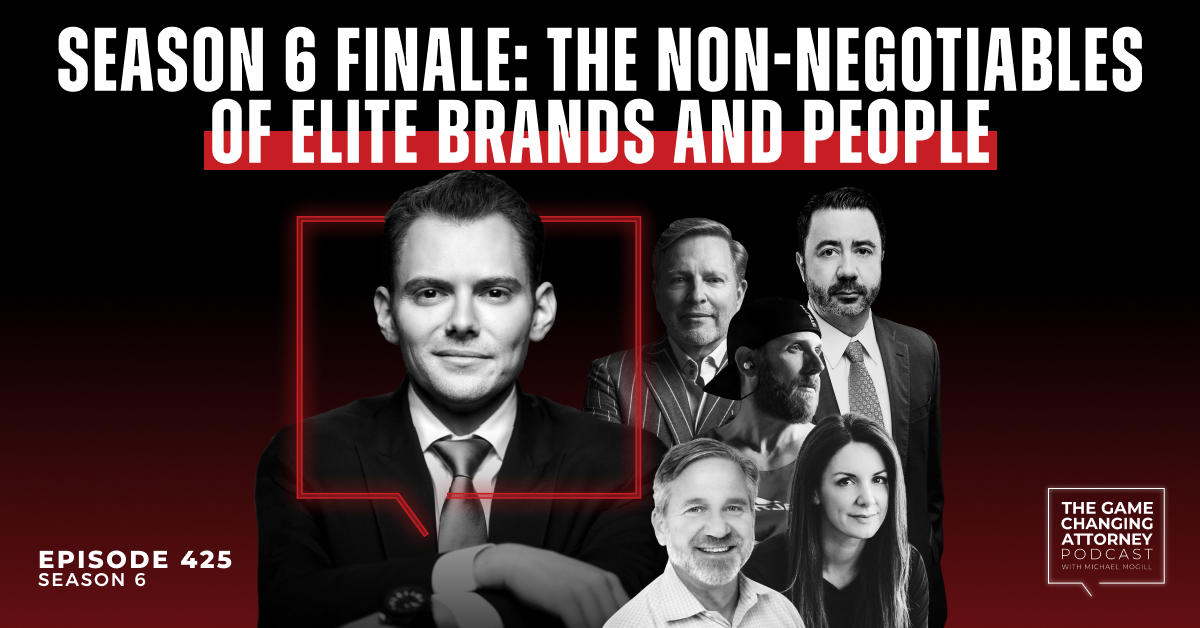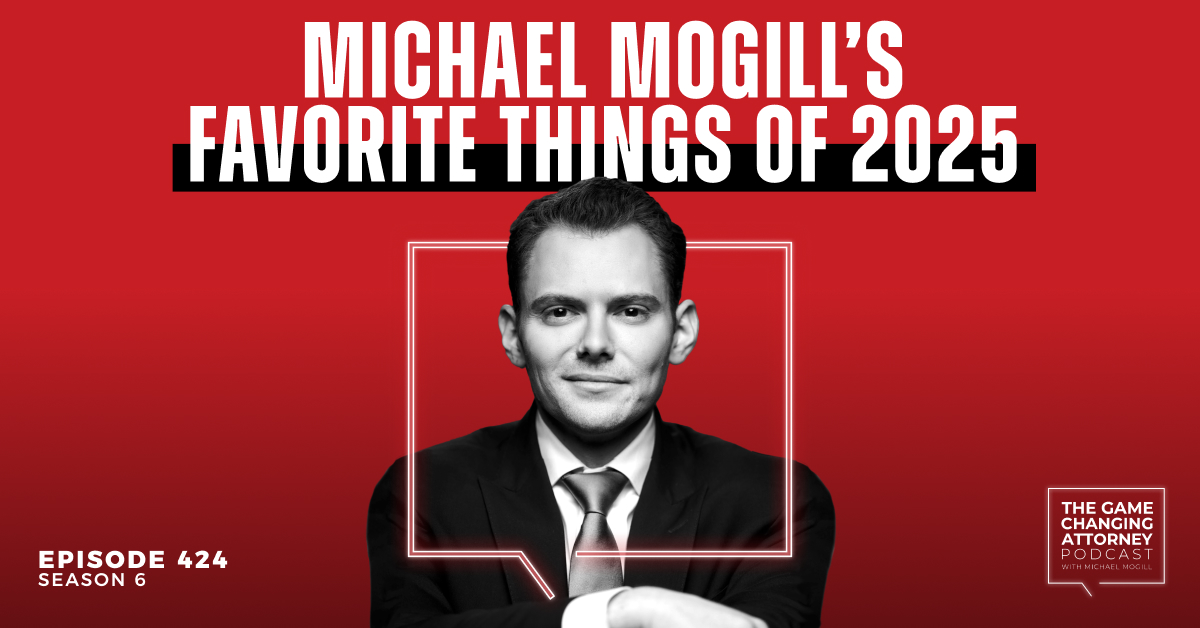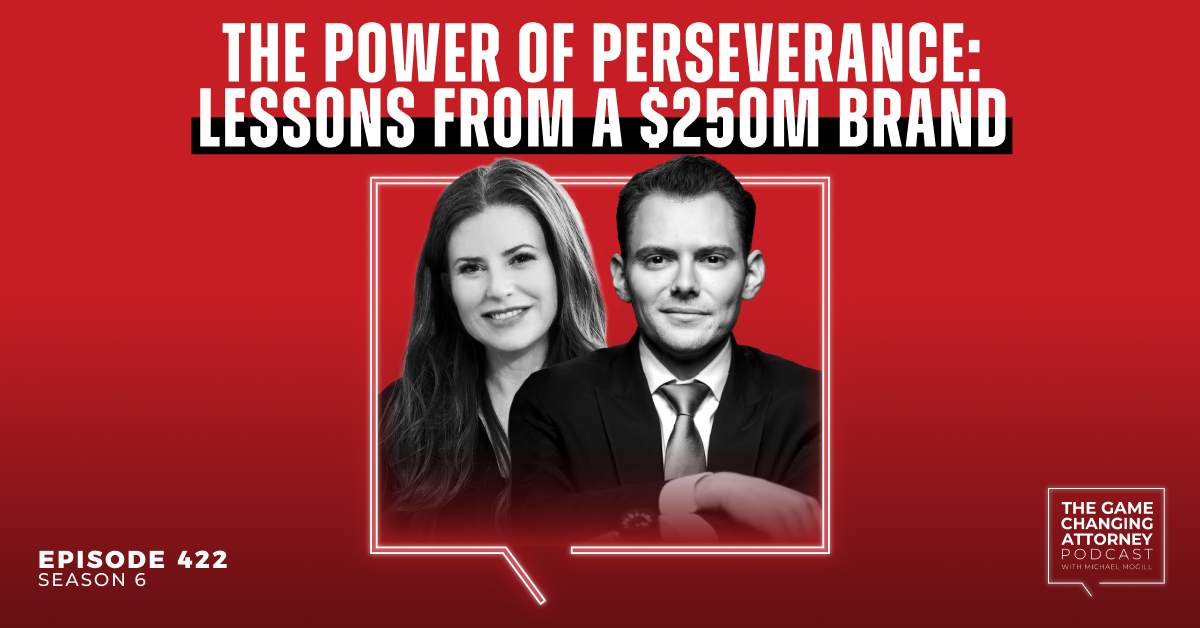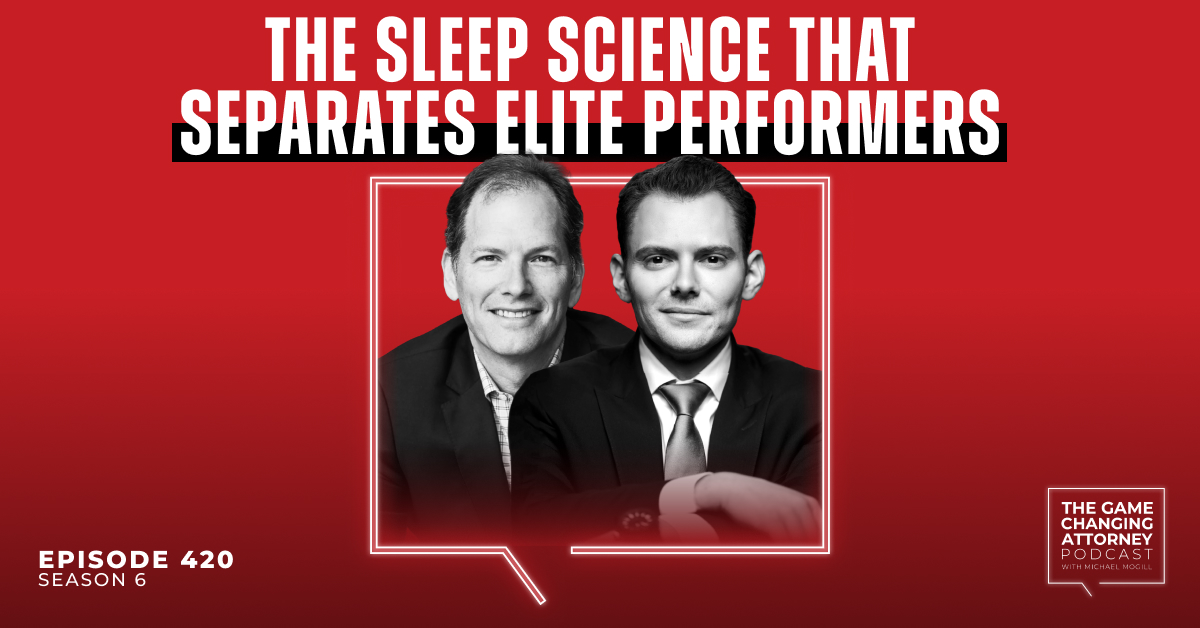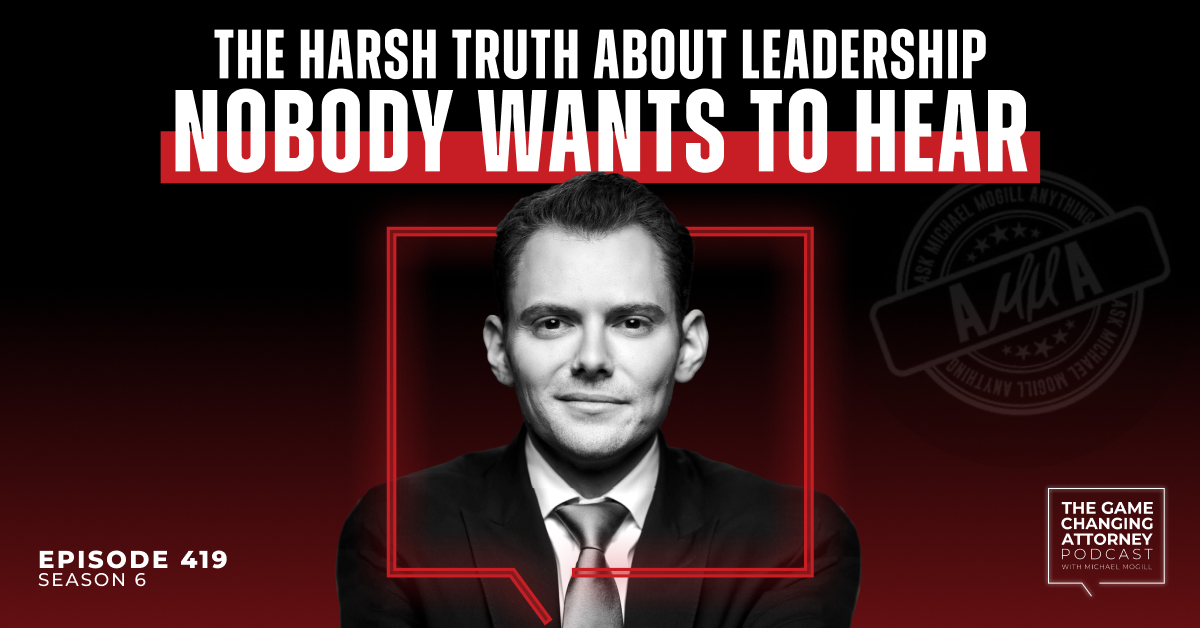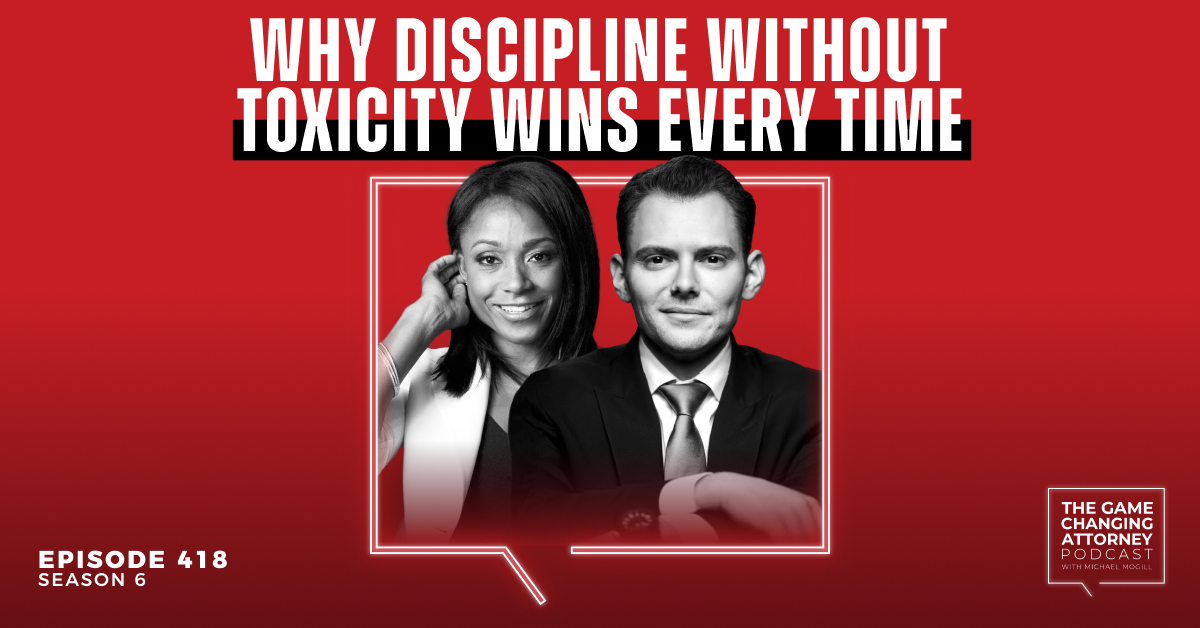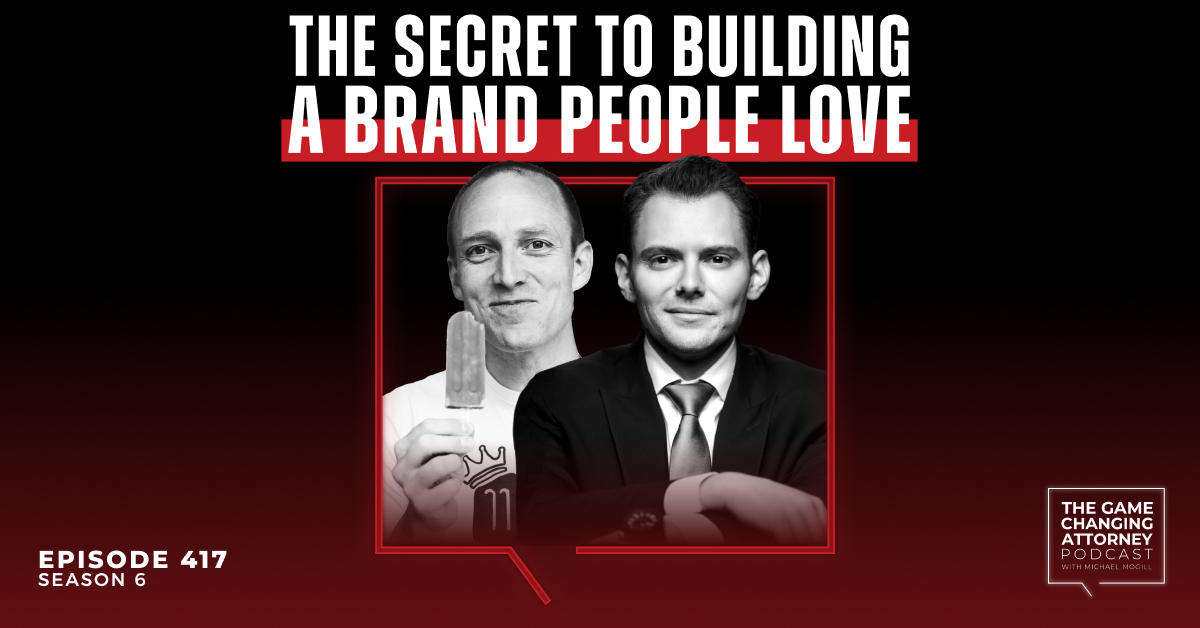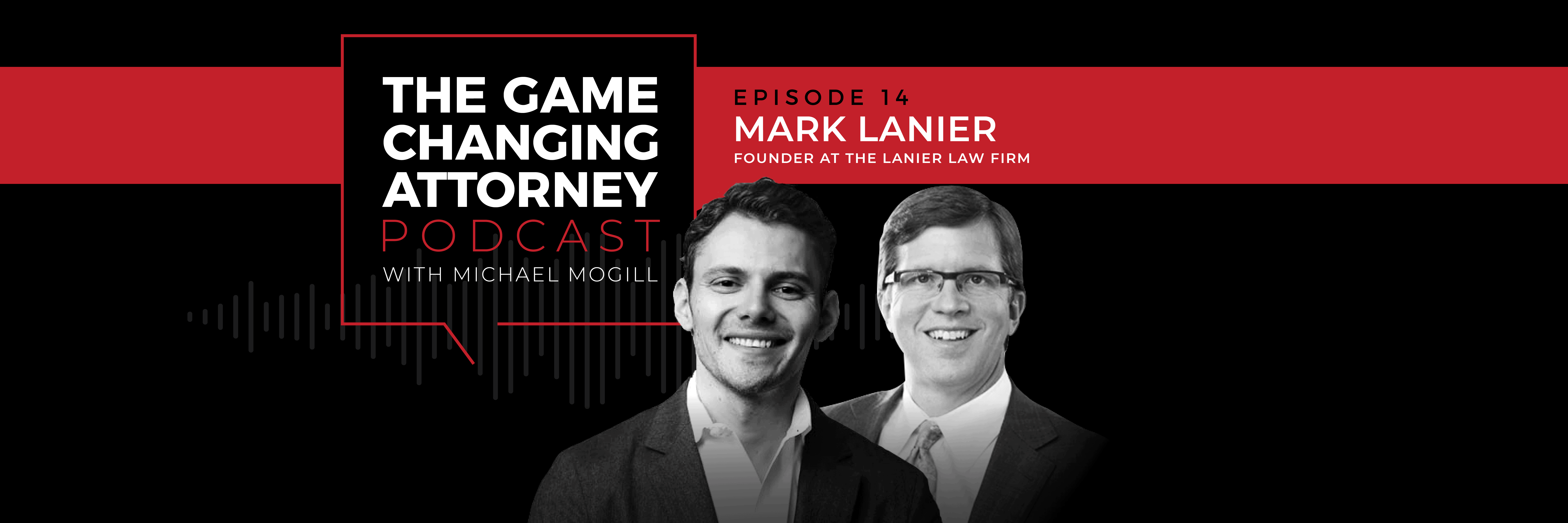
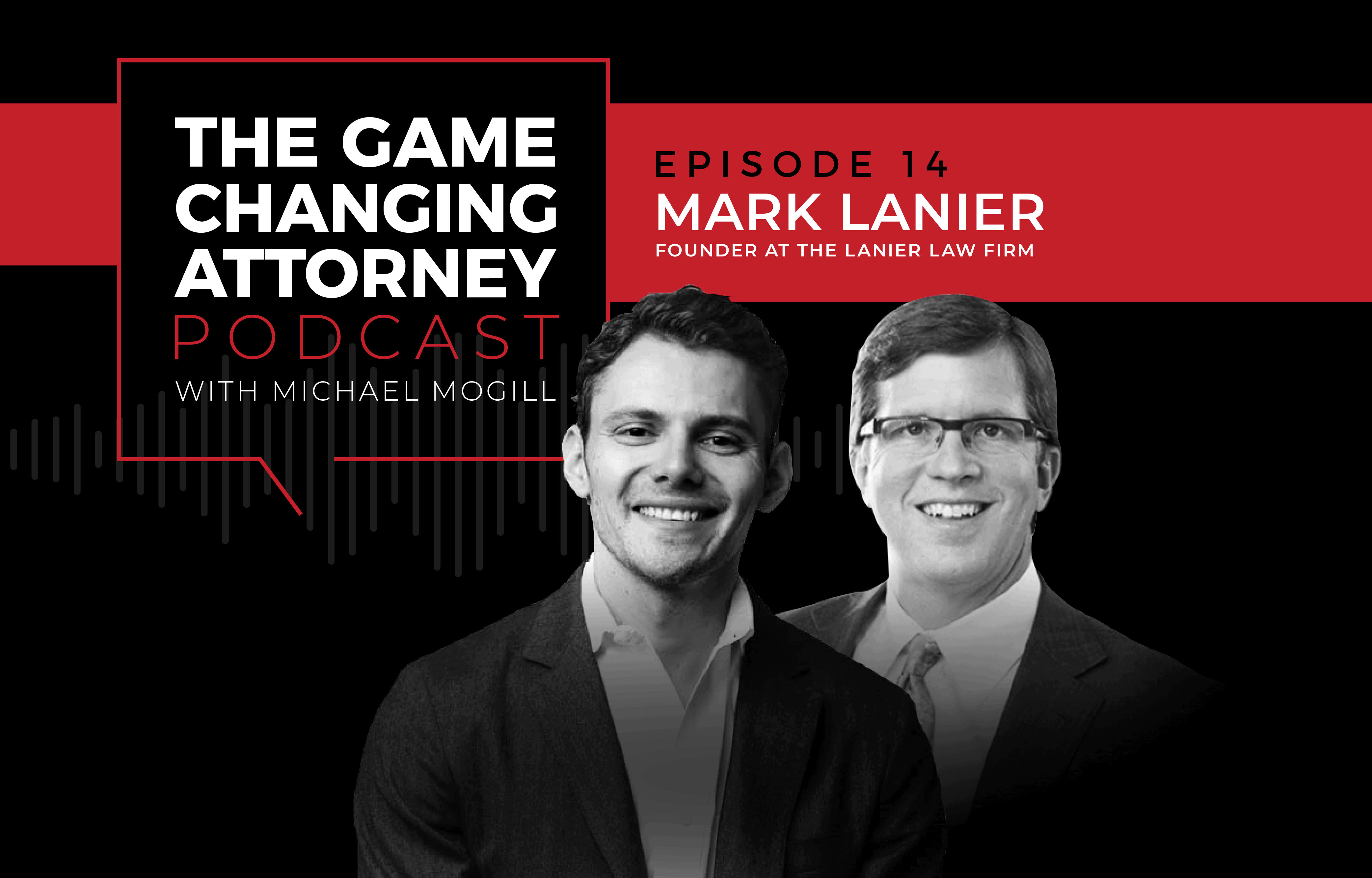
EPISODE 14 — Mark Lanier — Achieving Billion-Dollar Verdicts
Often, successful lawyers will have a single career-defining case, but Mark Lanier has a legacy of landmark cases and 8-, 9- and even 10-figure verdicts.
So what sets apart this trial law titan? One of the answers can be found in his storytelling prowess.
From his childhood spent all over the US, to the daily cliffhangers he told his children on the way to school, to the scenes he sets for jurors — Mark sees life in terms of parables, and he shares his masterful vision with us in this incredible episode of The Game Changing Attorney Podcast.
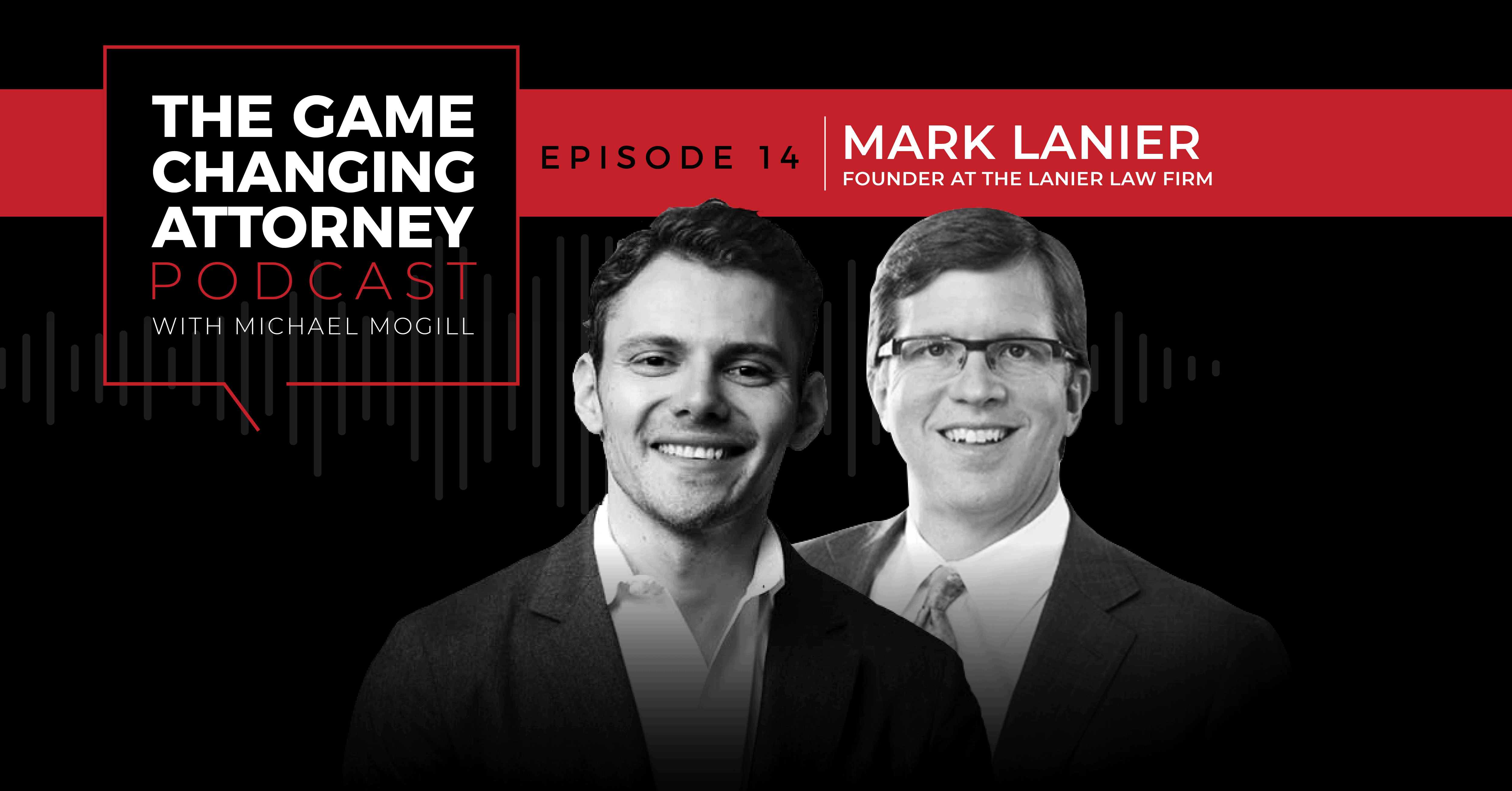
Listen & Subscribe
Show Notes:
2:29 – A nice way to pay the bills. “As I grew up, my faith was very important to me, so I thought the natural thing to do would be to be a preacher. I went to undergraduate school and it was a school that combined the seminary with the undergraduate school, so I graduated and among my degrees was a Bachelor’s in biblical languages — Hebrew and Greek — and I had that combined with a ministerial degree. And so, I was able to take that and go to law school with it, with the whole goal being of becoming a lawyer so that I could pay the bills and still be a preacher, but I wouldn’t have to charge for preaching. I could do it because I wanted to and not because I had to, if that makes sense. And so, I really just became a lawyer to pay the bills. I never dreamed that it’d turn out to be a niche, or a calling, or an area that I would thrive in. I just thought, ‘Hey, I enjoy talking and thinking and processing, and it might be a nice way to pay the bills.’”
4:27 – A lesson to learn. “Ultimately, I think what I teach other people at least is to try to combine talent with hard work and a diligent desire for truth and justice, and those are three aces that’ll be hard to beat.”
6:20 – A pivotal moment. “Who wants to say, ‘I spent my life recreating injustice’? I didn’t want to do that. That’s when I made a critical decision that I wanted to go on my own. I wanted to pick the cases I wanted to pick, and I wanted to represent people that had been wronged. That was one of those corners, one of those pivotal moments where you turn and — in faith language it’s called a ‘Damascus Road’ experience where the scales on your eyes, you know, kind of all go off and you realize, ‘Okay, I’ve got a potent weapon here in my life, and I need to use it for good.’”
7:15 – A responsibility to do right. “Well, there’s no question that I’ve reached a point where I’ve got that luxury of being more careful about what I take, but all of us have a responsibility to do right by our talent and to do right by our system.”
9:30 – Trials are learning experiences. “There are other cases we’ve taken, where yeah this isn’t necessarily the one that’s going to sing and produce the world, but it’s important for people to develop their skill sets on those cases. Cases can be an educational tool as well. So there’s a large scope — a big buffet, if you will — of cases out there, and sometimes you can take those cases for different reasons. But behind all of it, we’ve got to remember that we carry an awesome arsenal of opportunity. And that awesome arsenal of opportunity needs to be used for good, holy, right, just purposes.”
10:30 – A method to the madness. “How we conduct pre-trial discovery, with an idea that we’re going to try the case is very different from the way I think most people are doing it. How we take depositions is very different from the way most people are doing it. How we take an expert’s deposition and opposing expert — very simple. I’ve got a process for doing that that will allow me to send a novice lawyer out for the most important critical expert in the trial, and if that novice will follow my five step rule for that deposition, it will be everything I need for trying the case. So, the preparation is different for us. I’ve got very stringent, certain rules for what order to put on witnesses. There are four critical moments in every trial, and how you identify those moments and how you handle those moments are absolutely key. There’s a whole area of litigation science that’s involved not just in jury selection, but it’s involved in communication theory and how you present things, how you persuade people, how you get people’s minds around damages and thoughts like that, how you move people from knowledge to motivation — those are two different things. And some of this is information, but some of it is also wisdom, and I think you probably know the difference between the two. But if you don’t, here is an example. Information is knowing that a tomato is a fruit. Wisdom is knowing not to put it in your fruit salad. You know that you cross that line somewhere, and so I try really hard to teach people not just to know what to do, but to be wise in how they do it.”
14:12 – Balance is necessary. “The best trial lawyers, I believe, are also well-rounded people. They are people who have a life outside the practice of law. They are people who know what’s on TV that their jurors may be watching. They are people who can speak about love to a jury because they have that love in their family. They are people who can speak about the values of faith or the values of priorities because they have faith and priorities in their family. They are people who can exude goodness, if you will, because it’s important to them to try to be good people.”
15:51 – How do you define success? “Success for me is defined from my faith perspective. It is doing what I’m supposed to be doing, before God, as I understand God to be. And that means treating people with love and justice. It means walking humbly with God. It means taking care of my family and nurturing that. It means being a good steward of the talents and gifts that I’ve got, and making sure they’re used for good purposes. I’m one of these maybe unusual people, but I truly believe there is a God. I truly believe he wants to be in a relationship with us — so much that he would seek us out and ensure that we have that opportunity — and that he’s got plans for our lives. And so, believing that — and truly believing it, not just giving lip service — means success for me is a meeting with that God and walking with that God and doing the things he set before me to do to his glory and not my own. And in that I find great joy. I find great satisfaction. And that to me is success.”
17:14 – The importance of knowing thyself. “I think the more we know and understand ourselves, the more honest we’ll be with ourselves. And I think it translates in front of a jury because juries — especially the younger jurors, but all jurors — seek authenticity. I mean, don’t we all seek that? I can be on your podcast, Michael, and I can give fake answers and people could sniff that out, and once they do, they discount everything else that I say. Or, I can try to be authentic to who I am — try to be genuine — and in the process, people may not agree with everything I say, but they’ll at least respect the fact that I’m trying to give them what I believe to be the truth.”
20:40 – Authenticity wins. “I had to realize, and I reached a point one day where a lawyer from Florida said to me — it was David Lippman — David said to me, ‘Lanier, how many cases did you have to try before you realize you just need to be yourself?’ And I said, ‘David, I can remember exactly when I turned that corner because there came a time where it was no longer about being the chameleon imitating those that are successful. It was rather, learn their tools and what makes them successful, but integrate them into who you are as a person. Be authentic to who you are.’”
24:13 – Having a David mindset in the courtroom. “I don’t get nervous; I get excited. You know, it’s really interesting, and this again is part of how I try a case from out of my faith. You know I’m in there because I think this is where God wants me to be — that clarity of purpose you were talking about before. I think this is what I’m supposed to do. You know, David wasn’t nervous when he was picking up the stones and he was about to fight Goliath even though Goliath was a giant that frightens the rest of Israel.”
26:49 – An opponent’s misguided mindset. “I’ve been in cases before where people have said, ‘You know, I’m going to be the one. I’m taking you out,’ and they seem to be trying it just for that. I love those opportunities because that means that their focus is not where it should be. Their focus ought to be on the truth and getting to the truth in front of the jury. Instead, their focus is on taking me down.”
29:08 – A monumental victory. “The thing about that case was, it was a monumental issue that had not been tried before. And we believe that Johnson & Johnson baby powder had asbestos in it, and that that asbestos had caused the ovarian cancer in our 22 plaintiffs — I still believe that today. It was the start of a chain of events that led ultimately to Johnson & Johnson, several months ago or six weeks ago, pulling that talcum baby powder off of the shelves in America and Canada and saying they will not sell it anymore. I think that saves countless lives into the future. And it’s a huge thing.”
31:53 – More than just a verdict. “I had these women who had invested their heart and their soul and their life in trying to get justice on this, and it was a thrilling moment for them. I had a team who had worked so hard in this case — it was a thrilling moment for them. And then the jury had become so invested in it — it was a thrilling moment for them, and a chance to finally, after months, get to talk to the jury, where they could talk back, and not to sit on the other side of the bar. So that was a Kodak moment, if you will. That was a really special time for me.”
39:30 – Daily habits. “I try to get through the day in a way that when I’m done, I’m able to be with my family and truly connect with each one of them in some way, shape, form, or fashion. And then during the week I try to get ready for my class that I teach each Sunday. It’s live streamed on the internet, and we get viewers from all over the world that I’m able to make connections with. And so, I’m just trying to do the best I can each day and get it all done.”
40:10 – What does being a game changer mean to you? “Being a game changer to me means trying to not just do what everyone else has done, but trying to go out there and blaze a new trail. You know, one of the things that I’ve really tried hard to do as a lawyer is, I made a decision before every case I tried that I wanted to kick my game up another notch. I wanted to learn a new skill set. I wanted to learn a new concept. I wanted to learn and develop something new, so that I don’t look back at the end of my legal career and say, ‘I peaked seven years ago. I peaked at this trial or that trial.’ I want to be able to look back and say, ‘I got better each time,’ and if you have that attitude, you’ve got no choice but to be a game changer because you’re going to find all of these new things and new ways you can do things that change your own game. And if you’re changing your own game, you’re changing the game for others — because people will watch, and people will learn.”
EPISODE RESOURCES
David and Goliath
Johnson & Johnson case
Puncture (2011)
Denzel Washington – Dillard University commencement speech
Connect with Michael
- Text directly at 404-531-7691
